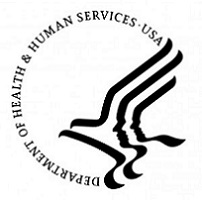 The Health Resources and Services Administration (HRSA) (@HRSAGov), an agency of the U.S. Department of Health and Human Services, announced awards of more than $100 million to train more nurses and grow the nursing workforce. These investments will address the increasing demand for registered nurses, nurse practitioners, certified nurse midwives, and nurse faculty.
The Health Resources and Services Administration (HRSA) (@HRSAGov), an agency of the U.S. Department of Health and Human Services, announced awards of more than $100 million to train more nurses and grow the nursing workforce. These investments will address the increasing demand for registered nurses, nurse practitioners, certified nurse midwives, and nurse faculty.
“Nurses are an essential part of our nation’s health care system,” said HHS Secretary Xavier Becerra. “Now more than ever, we need to double down on our investments in nurses who care for communities across the country.”
“Nurses are the frontline in delivering life-saving care and in keeping all of us healthy and well,” said HRSA Administrator Carole Johnson. “Today’s investments from the Health Resources and Services Administration demonstrate our ongoing commitment to supporting the nursing workforce, training and growing the next generation of nurses, creating career ladders for nurses, and recognizing the critical role nurses play in primary care, mental health care, and maternal health care”
The nursing workforce is essential to improving health outcomes and health care delivery across settings – including in hospitals, nursing homes, and other facilities – as well as in community practice such as nurse-run clinics, provider offices, health centers, schools and home and community-based care. HHS, and the entire Biden-Harris Administration, is committed to supporting nurses in this vital work and to building the workforce with initiatives like the resources announced.
The awards focus on key priorities such as:
- Helping Licensed Practical Nurses to become Registered Nurses: $8.7 million for the Nurse Education, Practice, Quality and Retention-Pathway to Registered Nurse Program which trains licensed practical nurses and licensed vocational nurses to become registered nurses.
- Training Nurses Who Will Deliver Primary Care, Mental Health Care, and Maternal Health Care:
- $34.8 million through the Advanced Nursing Education Workforce Program to increase the number of primary care nurse practitioners, clinical nurse specialists, and certified nurse midwives trained and prepared to provide primary care services, mental health and substance use disorder care, and/or maternal health care.
- $30 million through the Advanced Nursing Education-Nurse Practitioner Residency and Fellowship Program, to support comprehensive residency and fellowship training programs to increase the number of trained advanced practice nurses in primary care.
- Addressing the Bottlenecks in Nurse Training by Supporting More Nurse Faculty: $26.5 million through the Nurse Faculty Loan Program for award recipient schools to provide low-interest loans and loan cancellation to incentivize careers as nursing school faculty.
